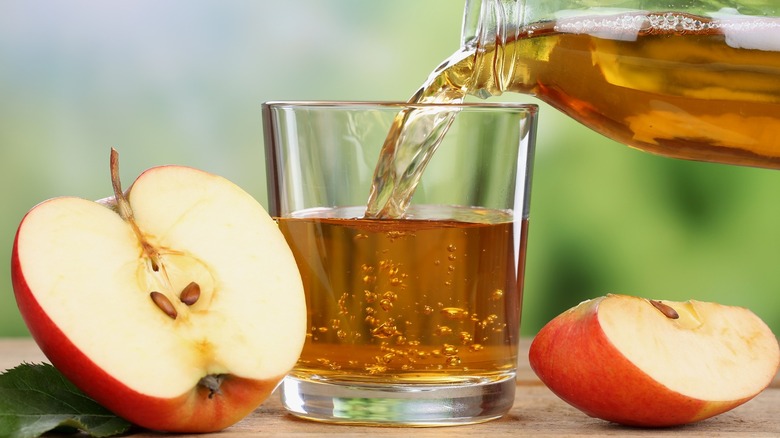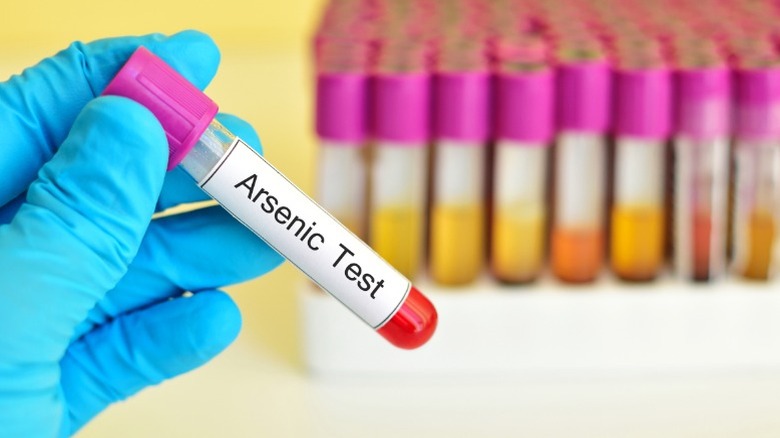Should You Be Concerned About Arsenic In Apple Juice?
In 2024, the beverage manufacturer Refresco faced a product recall for apple juice containing an unexpected ingredient: arsenic. If that company name doesn't sound familiar, it's probably because you only know the popular apple juice brands that use Refresco for production, like Great Value, Clover Valley, Nature's Nectar, Tropical Delight, and more. The FDA flagged over 140,000 cases across these retailers, and it raised some eyebrows over just how arsenic ended up in a sweet beverage beloved by children.
Inorganic arsenic in apple juice should not exceed 10 parts per billion — a standard set by the FDA since 2013. The Refresco products had to be recalled because they exceeded the federal limit of arsenic with some levels of 13.2 parts per billion (ppb). Over decades-long tests, the mean arsenic level is well below 10 ppb with an average of 4.6 ppb. To put these numbers into perspective: A glass of grocery store apple juice isn't going to give anyone arsenic poisoning. You're fine to consume it in moderation, just as you do with any other food and drink.
What you need to know about arsenic in beverages
There's an idea in toxicology of "the dose makes the poison," meaning that all things can be harmful depending on the amount and how it affects someone. Inorganic arsenic is one of the most famous historical poisons with the ability to cause severe sickness or death at a level of 60,000 ppb — far greater than anything you'll find in apple juice or drinking water. Arsenic also isn't some mystery potion floating around, rather, it's an element found virtually everywhere in food, water, and air.
The issue is that overexposure to arsenic is a health risk, which is why the FDA requests food manufacturers to limit arsenic traces to an amount way below what it would take to feel any toxic effects. The agency's statement for setting the 10 ppb limit in apple juice in the first place is to "reduce exposure to environmental contaminants from foods commonly consumed by babies and young children." Apple juice by itself is one thing but combined with the everyday arsenic exposure we get from everything else, any traces of arsenic over 10 ppb isn't guaranteed to be safe for consumption. We researched the best and worst juice brands to help you mitigate your intake of any other unwanted ingredients.

